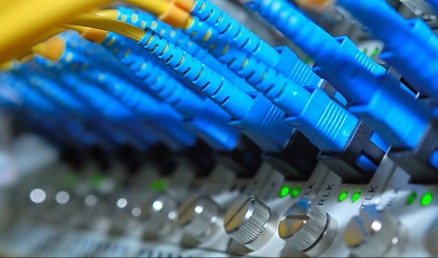The Federal Communications Commission on Thursday approved a $9.25 per month subsidy that will bring broadband Internet to millions of low-income families. Three out of the FCC’s five commissioners voted for the subsidy plan, which is part of a reform of the Lifeline program and the latest FCC effort to treat broadband as a public utility. The subsidy for broadband comes at a time when high-speed Internet has become indispensible for school homework, finding and keeping employment and other essential tasks.
The New York Times reports those eligible for the Supplemental Nutrition Assistance Program and tribal and veterans benefits will be able to apply for the subsidy, which can be used for wireless or fixed-wire broadband, beginning in December. FCC chairman Tom Wheeler noted that the new subsidy ensures that, “Americans can access the dominant communications platform of the day.”
In moving to create this subsidy, the FCC based its decision on the fact that 20 percent of Americans don’t have broadband Internet at home, 40 percent of who earn less than $25,000 a year. NYT reports that seven out of 10 schools assign homework requiring the Internet and most classified job ads and job applications are posted online. In contrast, 95 percent of all households making over $150,000 have high-speed Internet at home.
The FCC is attempting to keep the subsidy program’s budget under $2.25 billion, which is generated by line item charges on wireless and Internet bills.
“This meets the 21st-century needs for those most vulnerable,” says Democratic commissioner Mignon Clyburn. The vote split among party lines, with the two Republican commissioners wanting a lower, hard cap on the program and ultimately voting against it. Lifeline started in 1985 to provide phone services for low-income families.
The FCC also took the next step in a proposal to “create the first broadband privacy rules that would let consumers choose whether AT&T and Comcast could collect and share data about them.” The two Republican commissioners also voted against broadband privacy rules, which are strongly opposed by the cable and telco industry.
Comcast says that “broadband providers had not harmed consumers by abusing their collection and sharing of data,” pointing to Internet companies such as Google and Facebook which are not regulated even though they collect consumer data for targeted advertising.


No Comments Yet
You can be the first to comment!
Sorry, comments for this entry are closed at this time.